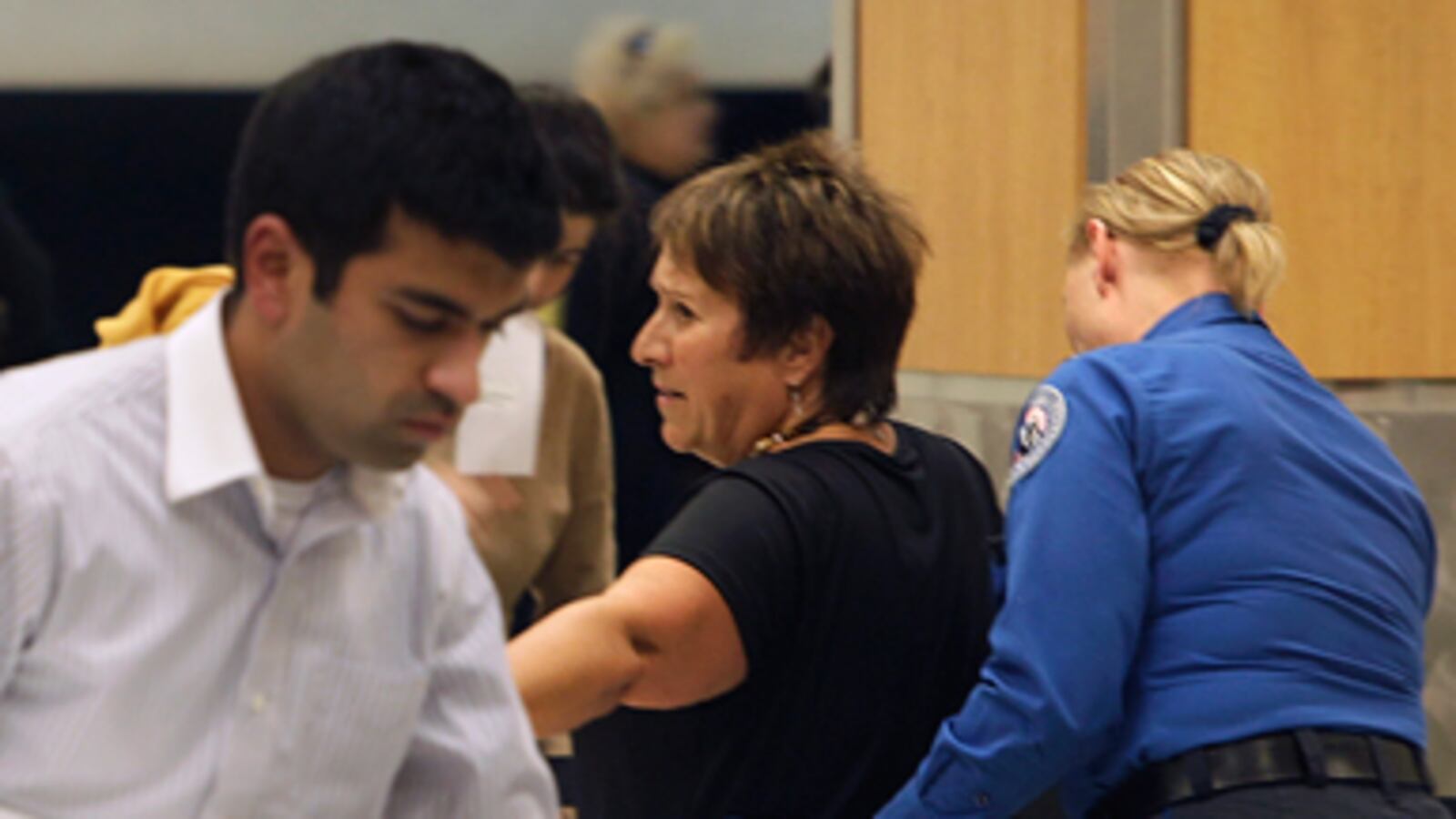“If you touch my junk,” John Tyner told a TSA agent who was frisking him, “I’ll have you arrested.”
Welcome to the security theater of the United States.
In its rush to improve airport security following the tragic 9/11 attacks, Congress created a monster. President George W. Bush and Congress federalized airport security in 2001, forming a massive new government bureaucracy that has now reportedly grown to more than 67,000 employees.
These days, those thousands of Transportation Security Administration employees are conducting invasive searches, making 3-year-olds scream while they are patted down for weapons, frisking nuns, looking at naked images of your body, and forcing you to throw away perfectly good liquids.
And yet our airports are still far from secure. As USA Today reported in 2008, “A November GAO report said investigators repeatedly smuggled liquid explosives and detonators past airport checkpoints in 2006. An internal TSA report said screeners in Los Angeles and Chicago airports missed fake bombs on agents in more than 60 percent of tests in 2006.”
And the privacy-invading new scanners being installed at airports won’t automatically fix that. A government report found it “remains unclear” if the scanners now being installed would have caught the underwear bomber last Christmas.
People are outraged at the TSA’s aggressive pat-downs and privacy-invading scans. Yet the TSA continues to foolishly pretend that everyone boarding a plane is equally likely to try to blow it up. This equal-risk assumption has caused knee-jerk reactions to the shoe-bomber (take your shoes off), the liquids bombers (small toiletries, no liquids through the checkpoint), the underwear bomber (body scans and pat-downs). Heaven help us the first time a would-be suicide bomber is caught with explosives hidden in a body cavity. By the TSA’s logic, they would have to make body-cavity searches routine for all of us.

This nonsense needs to stop, and that means shifting to a risk-based screening system. Passengers should be divided into three risk groups and dealt with accordingly: high, medium, and low-risk.
Low-risk travelers would be those about whom solid information exists that they are not a threat to aviation. Obvious candidates include cockpit crews and those already holding government security clearances. By the same token, frequent air travelers should be able to volunteer for trusted traveler aviation-security clearances by submitting to a rigorous background check. If you pass, you get a biometric ID card, present it at the airport proving you’re the person who was already cleared and go through minimal security.
In its rush to improve airport security following the tragic 9/11 attacks, Congress created a monster.
High-risk travelers would be those on any of the various watch lists maintained by the Department of Homeland Security—not just the current TSA no-fly and selectee lists. Yes, this would be a form of “profiling,” but not based on race, ethnicity, or religion. Rather, it would be evidence-based profiling, using intelligence information and previous travel history information.
• Conor Friedersdorf: Who Pats Down Your Privates?Everyone else would be considered medium-risk. They would face old-fashioned checkpoint screening, fully clothed (including shoes and jackets)—walk-through metal detectors and two-dimensional X-ray of their carry-ons. And as with the low-risk people, a small fraction would be randomly selected for secondary screening.
That approach would better focus security resources, saving taxpayers a small fortune. TSA’s army of screeners could be shrunk instead of continually expanded. And procurement of body-scanning machines could stop, since TSA already has more than they need for secondary screening.
Once that is done, maybe we can get TSA out of the screening business altogether. TSA shouldn’t be both the provider of airport screening and the regulator of all aspects of aviation security. TSA regulates itself and has hidden its mistakes in the past. It suppressed a report in 2007 showing that private security companies were at least as effective as TSA screeners and that if more careful accounting were done, were probably less costly, too. TSA never released that report, but the Government Accountability Office blew the whistle on TSA’s attempted coverup.
In Europe, regulators require each airport to be responsible for its security, and those airports are free to hire government-licensed security firms to carry out screening—which is the pattern in nearly every Western European country. In Canada, the government created an airport security agency following 9/11, but empowered it to contract with private security firms to do all airport screening in Canada. The United States is the only Western country that combines aviation security regulation and airport screening in the same entity.
Rep. John Mica (R-FL) was the Aviation Subcommittee chairman back in 2001 and voted to create the TSA, like nearly every other member of Congress not named Ron Paul. But Mica also wisely created a provision that allowed airports to opt-out of the TSA and use private screeners instead. He is strongly encouraging airports to opt-out of the TSA now.
In January, Congressman Mica will chair the House Transportation Committee and if his fellow Republicans are truly committed to smaller government then they can start radically reforming the incompetent, privacy-invading TSA monster they helped create.
Robert Poole is Director of Transportation Policy at the Reason Foundation.






